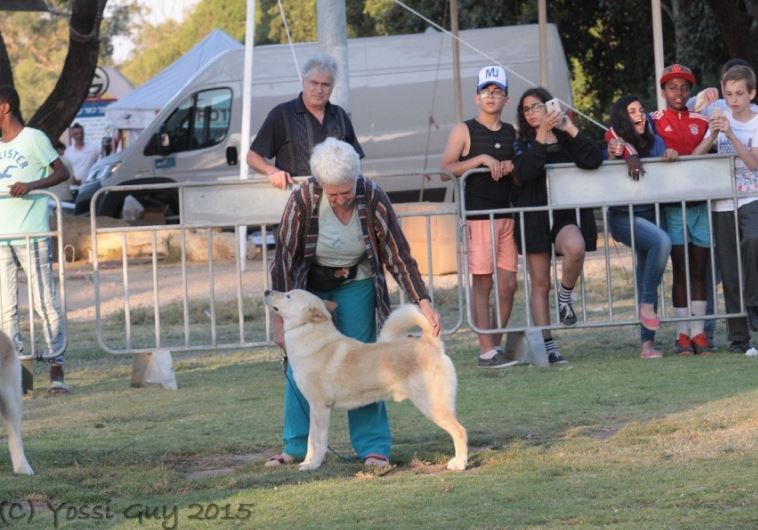Facing eviction, Canaan dog breeder turns to public to recruit relocation funds
"This is the dog that existed for thousands of years, exactly as he is now," breeder says.
 Myrna Shiboleth with one of her Canaan dogs at a show(photo credit: MYRNA SHIBOLETH COURTESY)Updated:
Myrna Shiboleth with one of her Canaan dogs at a show(photo credit: MYRNA SHIBOLETH COURTESY)Updated: